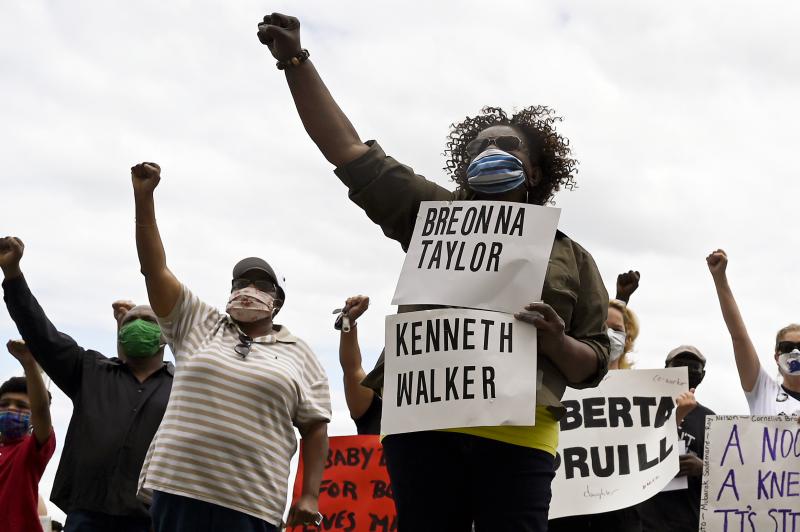‘It’s Happening To All Of Us’: The Way Black Women Are Policed Is A Health Issue

Caravan 4 Justice activists and protesters gather at the north side of the Connecticut State Capitol in Hartford to demonstrate against the systemic abuse of police power perpetrated against the black community, June 7, 2020. (Joe Amon/Connecticut Public)
It’s been more than four months since Breonna Taylor was shot and killed in her home by Louisville Metro Police as they executed a no-knock search warrant. She was a 26-year-old Black woman who worked as an emergency medical technician and aspired to become a nurse.
And while rallies, protests and much of the media attention has been fixed on the killing of George Floyd in Minneapolis, Connecticut activists continue to bring attention to violence committed against Black women and girls through policing and from systemic racism.
“A lot of these things trigger me,” Holly Tucker, a mother from New Haven, said at a rally last month. “I try not to come as much as I used to, more so because I was pulled out of my car three years ago by the police and I’m still in my healing process. But I also still want to be supportive of everyone else. It’s not only just about me, you know, because it’s happening to all of us.”
National reports show that the lifetime risk of being killed by police is highest for Black men, and their deaths have sparked actions in Connecticut and across the country that call for justice and an end to systemic racism.
Black women and girls, including trans women, have also suffered harm or died at the hands of police during attempted stops, arrests, raids and other interactions. But their cases often fade from the forefront in discussions on police reform and racism, even as incidents contribute to a lower life expectancy for Black women than for their white and Hispanic counterparts.
Public health and justice experts said people need to recognize that for what it is — a health issue.
Read the rest of this story at WNPR.org.
